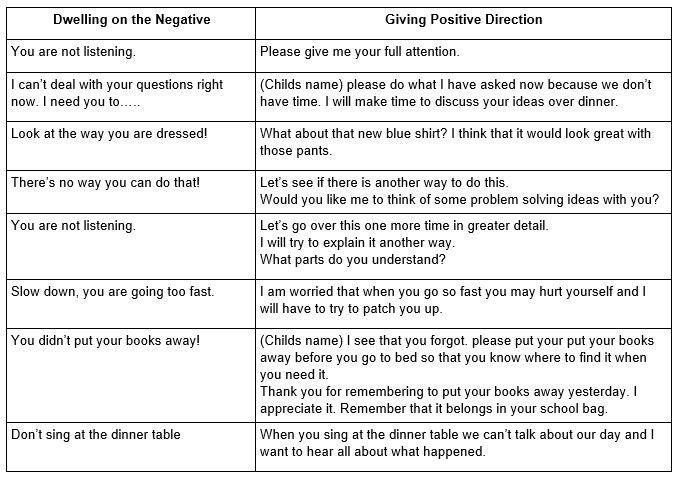Positive Reinforcement
ADvTECH Group • March 17, 2021
Positive Reinforcement

We are coming to the end of the first term and, even though we are now in lockdown 1 the emotional fatigue and depletion that we are all experiencing is taking its toll. With this in mind I would like to focus on the power of positive praise and direction. Negative acknowledgments occur when we dwell on the problem or punish our children for their imperfections and, without even realising it, parents fall into this as a default mode particularly when we are tired. I believe that the reason for this is that we want to be good parents and we want to teach our children how to behave in socially acceptable ways. A suggestion is that we pay attention to our language and coach what we want and need to say with the same end in mind but with a different lens. Consider these examples of directing a child rather than focusing on the problem.
It is well documented that children need boundaries in order to flourish and as such we, as parents, have to correct our children. However, instead of focusing on their behaviour in a negative manner, we can use the opportunity to give them a chance to change. When we address issues in a non-threatening and positive manner we point the child to a better way. A fabulous idea is that of making a habit of intentionally catching your child doing something good or right at least once a day. Acknowledge him or her for it by describing the behaviour. Below are some examples of the
type of language that encourages this slight shift in the way we do things:
· That was so kind of you. ….
· I enjoy having your help in the kitchen.
· …. is so lucky that they have you as a friend because you … (let them share your toys, gave them a turn …)
· I was able to get a quick nap while you played with your sister. Thank you for that
· Thank you for using your inside voice: I really appreciate it.
· You are being so helpful. I know that I can depend on you.
· Everything is going so smoothly. Your help has made the difference and I now have time to ….
· It is so much fun playing with you… (you have such creative ideas, are fair, help me to get better at …, I always learn something new when I am with you …).
· That was a good shot. I can see that you have been practicing.
· Thank you for listening and not interrupting. I can see that you are learning to self-regulate. (Using language like self-regulation, responsible, organised, environmentally aware, consistent, conscientious is recommended for all ages – it is the topic for another conversation).
· You followed all of my instructions - good job.
· You stayed right on track. Well done.
· This is a wonderful picture … (I like the colours that you used, you have added so much detail, I see that you remembered to add fingers – well done ...)
· I know that you always try your best. I am so proud of you for that.
· I have noticed that you are remembering your table manners. Thank you.
· You remembered to use your manners. I am proud that you are my son/daughter.
You are being so co-operative. It is such a pleasure. I appreciate you.
Thank you for listening even though you really wanted to say something. I can see that you are learning to wait your turn and not to interrupt others.
I noticed that you shared your toy; that was very considerate
You got dressed all by yourself. Well done.
It’s good to ask for help and you came and found me. Good problem solving.
You solved that problem all by yourself. Wow!
By pointing out and acknowledging positive things about your children and their behaviour, they will see themselves as successful and good. This positive image of themselves will not only motivate them to co-operate but will also create a positive self-esteem, confidence, and a sense of competence. By describing the behaviour you desire you are teaching your child indirectly. That means that there is likely to be less defensiveness and more opportunity for the child to reflect and connect the positive comment and desired behaviour.
Di Dawes.












